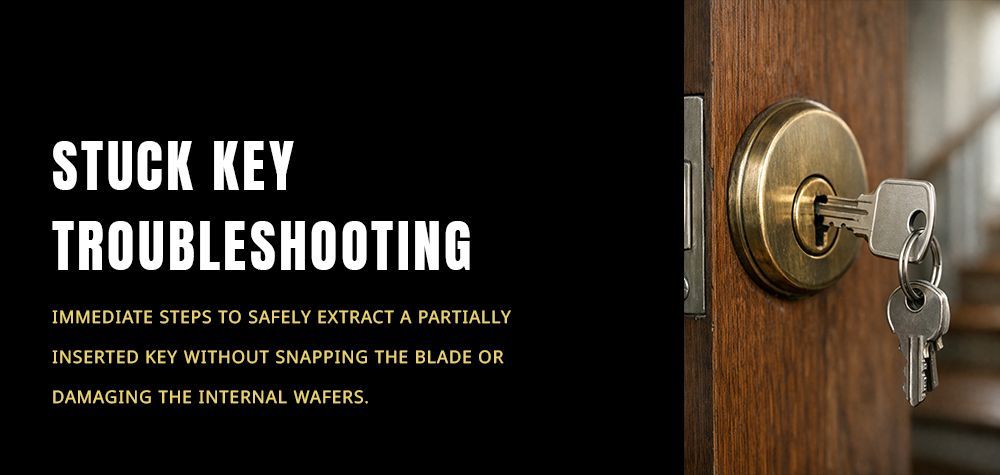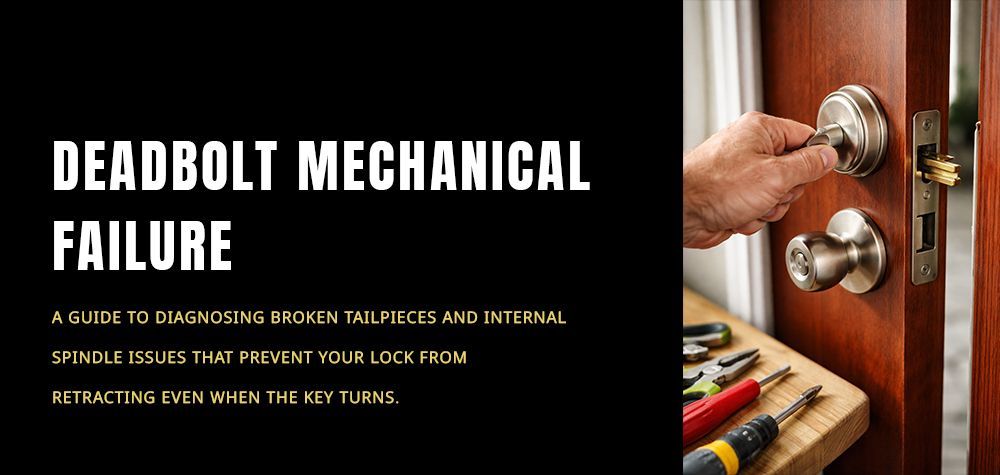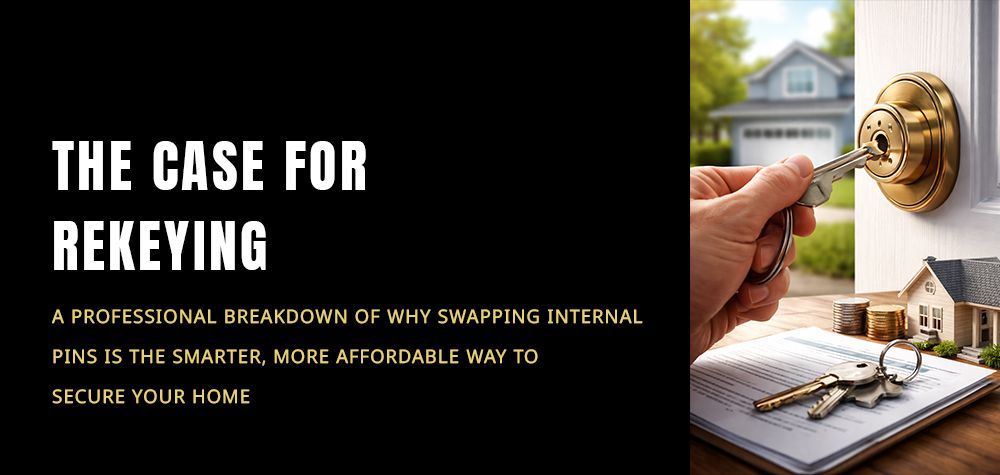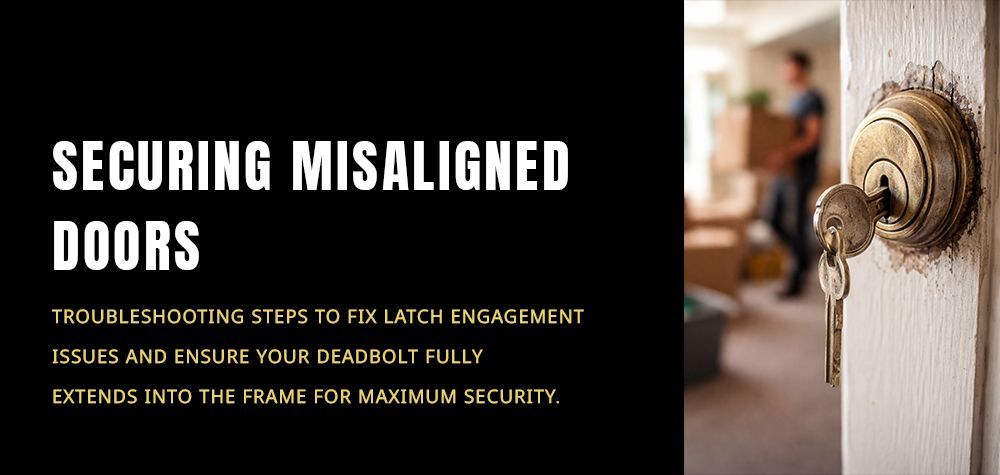Rekeying Locks in Commercial Properties: A Comprehensive Guide
In the ever-evolving landscape of commercial properties, security stands as a paramount concern. To fortify and adapt to dynamic security threats, one crucial strategy that businesses often overlook is the meticulous process of rekeying locks. In this comprehensive guide, we will explore the specific considerations and benefits associated with rekeying commercial locks, ensuring a robust security protocol tailored to the unique needs of your business.
The Imperative for Rekeying
1. Dynamic Security Threats
Security threats in commercial spaces are indeed constantly evolving, presenting a multifaceted challenge for businesses of all sizes. These threats range from traditional break-ins to increasingly sophisticated methods of intrusion and disruption. To effectively counter these risks, it's crucial for businesses to continuously adapt and enhance their security measures. Traditionally, concerns primarily revolved around break-ins, where physical barriers and surveillance systems were the primary defense. However, with advancements in technology and the emergence of more sophisticated methods, such as cyber threats and social engineering, the landscape of security has become increasingly complex.
2. Addressing Employee Turnover
Employee turnover poses a significant risk to security. Promptly rekeying locks is crucial to maintaining control over access and safeguarding confidential data. By swiftly updating access credentials, businesses can mitigate the risk of unauthorized entry and protect against potential breaches. Additionally, implementing robust access management protocols, such as regular audits of access rights and deactivating credentials upon employee departure, reinforces security measures and ensures the integrity of the premises.
Benefits of Rekeying in Commercial Settings
1. Cost-Effective Security Enhancement
Rekeying proves to be a cost-effective security enhancement compared to complete lock replacement. It provides a high level of security without straining the budget, a crucial consideration for businesses. Moreover, rekeying offers a cost-effective security enhancement compared to complete lock replacement.
This approach allows businesses to maintain a high level of security without straining their budget, a crucial consideration for organizations of all sizes. By simply changing the internal pins of the lock mechanism to fit a new key, rather than replacing the entire lock hardware, businesses can achieve the necessary security updates at a fraction of the cost. Delve into How much does it cost to rekey a lock? and How much does it cost for a locksmith?
2. Streamlined Access Control
Rekeying plays a pivotal role in maintaining streamlined access control. It ensures that only authorized personnel have access to specific areas, minimizing the risk of unauthorized entry. Furthermore, rekeying plays a pivotal role in maintaining streamlined access control systems. By updating lock mechanisms to fit new keys, businesses can ensure that only authorized personnel have access to specific areas, minimizing the risk of unauthorized entry.
This precision in access management not only enhances security but also fosters a sense of trust and accountability among employees. With rekeying, businesses can adapt access privileges as needed, swiftly revoking access for departing employees and granting permissions to new hires or personnel requiring updated access levels.
Delve into How to use a car lockout kit?
Optimal Choice for Commercial Rekeying: Brothers Locksmith
1. Unparalleled Expertise
Brothers Locksmith boasts extensive expertise in commercial lock rekeying. Their track record of successful projects and satisfied clients demonstrates their proficiency in ensuring robust security solutions.
2. Tailored Security Solutions
Understanding that each business has unique security needs, Brothers Locksmith excels in providing tailored security solutions. Their personalized approach ensures that rekeying strategies align with the specific requirements of each commercial establishment.
Tips for a Seamless Rekeying Process
Ensuring a seamless rekeying process is essential for maintaining security and minimizing disruption to business operations. Here are some tips to facilitate a smooth transition:
- Plan Ahead: Schedule rekeying during off-peak hours or times when access to the premises is minimal to reduce the impact on daily operations.
- Inventory and Assess: Take stock of all locks requiring rekeying and assess their condition. Identify any damaged or malfunctioning locks that may need replacement.
- Secure Resources: Gather the necessary tools and materials, including new lock cylinders, keys, and any additional hardware required for the rekeying process.
- Communicate Effectively: Inform employees and relevant stakeholders about the rekeying schedule and any temporary access restrictions. Clearly communicate the importance of security measures during this period.
- Work with Professionals: Consider hiring experienced locksmiths or security experts to assist with the rekeying process. Their expertise can ensure the task is completed efficiently and accurately.
- Update Access Credentials: Distribute new keys or access cards to authorized personnel promptly. Deactivate old keys to prevent unauthorized access.
- Test and Verify: Verify that all rekeyed locks are functioning correctly before resuming normal operations. Conduct thorough testing to ensure smooth operation and proper alignment.
- Document Changes: Keep detailed records of the rekeying process, including which locks were rekeyed, when the process was completed, and who received new access credentials. This documentation can serve as a reference for future security audits or maintenance.
- Monitor Security: Regularly monitor access logs and security cameras to detect any unusual activity or unauthorized access attempts following the rekeying process. Remain vigilant in maintaining security protocols.
- Evaluate and Adjust: After completing the rekeying process, conduct a post-implementation review to identify any areas for improvement. Evaluate the effectiveness of the new security measures and make adjustments as necessary to optimize security protocols.
Conclusion
In conclusion, rekeying locks emerges as a proactive and effective strategy for enhancing the security posture of commercial properties. Brothers Locksmith stands as a reliable partner in this endeavor, offering expertise and personalized security solutions to safeguard business assets. Don't wait for security threats to compromise your business – choose Brothers Locksmith for resilient and tailored commercial lock rekeying solutions.
Choose Brothers Locksmith for robust commercial lock rekeying solutions, where expertise meets personalized security to safeguard your business assets.
Call Us Any Time!







